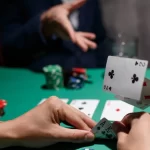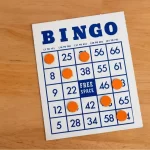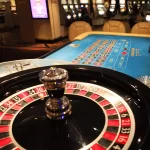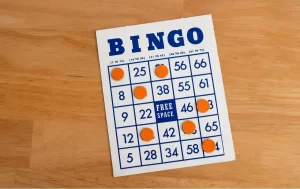Bingo involves matching patterns on cards to help develop visual perception, which researchers discovered through computer screens with various card sizes, contrast levels and visual complexity levels to show participants with mild dementia were still capable of performing at levels comparable to healthy peers.
Bingo’s fast pace can also help seniors improve hand-eye coordination. This can be particularly useful.
Memory
Playing bingo can be an excellent way to strengthen both memory and focus. The fast-paced nature of the game requires intense concentration, keeping all your attention focused on one thing for long stretches at a time.
Mental gymnastics like playing bingo helps strengthen short-term memory, delaying dementia. Focusing on one task for longer can also improve concentration in other aspects of life and build the ability to pay attention and stay focused in other aspects. Furthermore, social engagement through bingo provides a sense of community while alleviating feelings of isolation for elderly players in particular – something especially essential as studies demonstrate how social engagement is essential to maintaining mental wellbeing. No matter whether playing in person or online bingo can provide an engaging way to interact with others!
Attention to Detail
Attention to detail involves being able to recognize and correct minor mistakes, while at the same time following through with tasks to ensure all aspects of a project are completed accurately. This skill is essential in jobs requiring precision such as writing, numeracy, and design where attention to small errors prevents costly rework in later steps.
Use daily work habits when interviewing candidates to assess their attention to detail. Do they catch typos in emails, or note discrepancies in meeting notes that show they are meticulous? These indicators demonstrate their attention to detail. As part of your interview process, provide examples of your attention to detail when answering questions about past projects or experiences, then demonstrate how this meticulous approach helped contribute to their successful completion or challenges faced. As an example, keeping track of all the components necessary for a successful data entry project would be an ideal way to demonstrate your attentiveness. Also, promptly responding to customer questions in a timely fashion would demonstrate your dedication.
Mental Agility
Engaging in activities requiring mental agility can be highly beneficial to brain health. These include crossword puzzles, playing chess or learning a new sport – these activities will help improve your focus, concentration and problem-solving capabilities.
Bingo provides players with a platform to sharpen attention and quickly identify numbers called out, helping to hone memory and cognitive function while stimulating problem-solving abilities and spatial awareness – all qualities which have been demonstrated to delay or even reverse age-related brain decline.
Mental agility lies in remaining open to change and adapting your thoughts accordingly, so cultivating a growth mindset is key to this goal. Instead of seeing things as one big pie that needs dividing up into bite-size pieces, shift your mindset from scarcity mental model to abundance mental model and you will open yourself up to new opportunities – curiosity doesn’t kill cats after all – just makes us more agile! A growth mindset can be fostered through regularly challenging your perspective and engaging in thought-provoking dialogue with others.
Hand-Eye Coordination
Players participating in bingo must listen closely for numbers being called out, then quickly scan their cards to match up any that appear. This helps improve hand-eye coordination; with every round played, their coordination improves.
Bingo provides seniors with an avenue for social engagement and meeting new people in their community, helping combat feelings of isolation that could otherwise lead to dementia.
Bingo can help senior citizens feel valued and important in a social setting, whether at live games or virtual bingo sessions on computers. Playing together helps seniors connect with family and friends as well as boost mood by stimulating dopamine release – an antidepressant effect which many senior care providers offer through bingo games in their aging at home programs.











More Stories
Bingo – More Than Just a Game of Luck
Top 10 Casino Movies of All Time
Popular Casino Slot Themes and Their Appeal